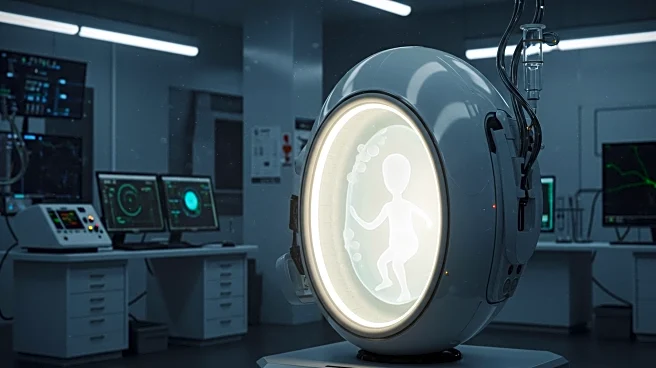What is the story about?
What's Happening?
China is reportedly developing 'pregnancy robots' equipped with artificial wombs capable of carrying a fetus for approximately 10 months. This technology, conceptualized by Dr. Zhang Qifeng of Kaiwa Technology, aims to provide an alternative for infertile couples. The robots would receive nutrients through a hose and interact with humans to achieve pregnancy. The cost of hiring a humanoid robot for pregnancy is significantly lower than traditional surrogacy, potentially offering a more accessible option for those struggling to conceive.
Why It's Important?
The development of pregnancy robots could revolutionize reproductive technology, offering new possibilities for infertile couples. This innovation raises ethical and legal questions, as it challenges traditional notions of childbirth and surrogacy. If successful, it could impact the surrogacy industry and provide a more affordable option for individuals seeking to have children. The technology also prompts discussions on the implications of artificial wombs and their integration into society.
Beyond the Headlines
The introduction of pregnancy robots could lead to significant ethical debates regarding the nature of parenthood and the role of technology in human reproduction. Legal frameworks may need to evolve to address issues related to custody, rights, and responsibilities of children born through artificial means. Cultural perceptions of childbirth and family dynamics could shift, influencing societal norms and values.















